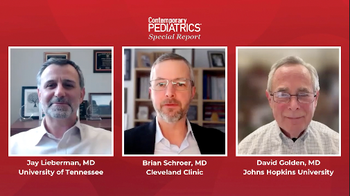
American Hospitals Sending New Mothers Mixed Messages
Most hospitals in eastern U.S. states give samples of baby formula to new mothers when they are discharged, according to a report published in the September issue of the Archives of Pediatrics and Adolescent Medicine.
WEDNESDAY, Sept. 3 (HealthDay News) -- Most hospitals in eastern U.S. states give samples of baby formula to new mothers when they are discharged, according to a report published in the September issue of the Archives of Pediatrics and Adolescent Medicine.
Anne Merewood, of Boston University School of Medicine, and colleagues conducted a study of 1,295 hospitals in 21 eastern states and the District of Columbia to ascertain their policies on the distribution of sample packs of infant formula, using telephone interviews based on a prepared script.
Formula samples were distributed by 94 percent of the hospitals contacted, although there were regional trends, the researchers report. For example, the proportion in New Hampshire was 70.4 percent, versus 100 percent in New Jersey, Maryland, Mississippi, West Virginia and Washington, D.C. However, from 1979 to 2006 there was a decline in the proportion of hospitals that distribute formula samples, they note.
"Exclusive breast-feeding rates among young infants are discouragingly low. Formula sample packs have been shown to undermine breast-feeding, and their elimination from U.S. hospitals may help to increase exclusive breast-feeding rates nationally," the authors write. "The prevalence of sample pack distribution is disturbing and incongruous given extensive opposition, but encouraging trends suggest the practice may be curtailed in the future."
Copyright © 2008
Newsletter
Access practical, evidence-based guidance to support better care for our youngest patients. Join our email list for the latest clinical updates.



